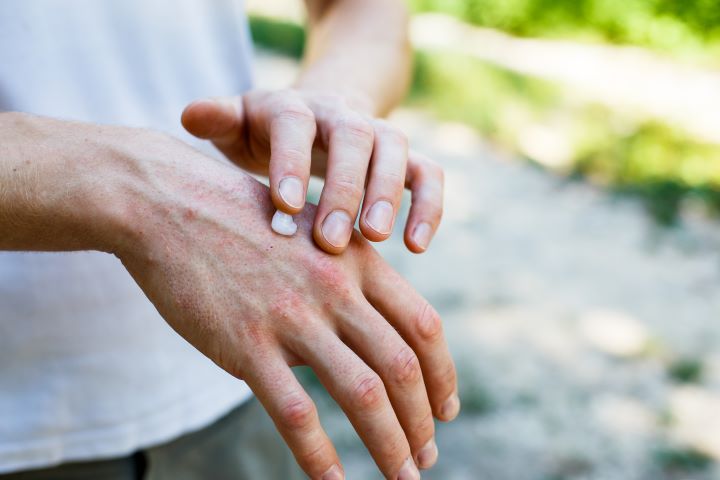Understanding and Managing Dermatitis: Effective Treatments for Skin Inflammation
Dermatitis, a common skin condition characterized by inflammation, affects millions of people worldwide. This irritating and often uncomfortable condition can manifest in various forms, each with its unique set of symptoms and triggers. Fortunately, numerous treatment options are available to manage dermatitis and alleviate its symptoms. In this comprehensive guide, we'll explore the different types of dermatitis, their causes, and the most effective treatments available to help you regain healthy, comfortable skin.

How can you identify different types of dermatitis?
Identifying the specific type of dermatitis is crucial for effective treatment. Atopic dermatitis, or eczema, typically appears as dry, itchy patches on the skin, often in the creases of elbows and knees. Contact dermatitis results from direct contact with an irritant or allergen and may cause a localized rash or blisters. Seborrheic dermatitis often affects areas with many oil glands, such as the scalp, face, and upper chest, causing redness and flaky skin. A dermatologist can help diagnose the specific type of dermatitis through a physical examination and, if necessary, additional tests like patch testing or skin biopsies.
What are the most effective medical treatments for dermatitis?
Medical treatments for dermatitis aim to reduce inflammation, relieve itching, and prevent future flare-ups. Topical corticosteroids are often the first line of defense, as they effectively reduce inflammation and itching. For more severe cases, oral corticosteroids may be prescribed. Immunomodulators, such as tacrolimus and pimecrolimus, can help manage symptoms without the side effects associated with long-term steroid use. Antihistamines may be recommended to reduce itching, especially for atopic dermatitis. In cases of infection, antibiotics might be necessary. For chronic or severe dermatitis, phototherapy (light therapy) or systemic medications like methotrexate or cyclosporine may be considered under close medical supervision.
Are there effective natural remedies for dermatitis?
While medical treatments are often necessary for managing dermatitis, several natural remedies can complement traditional therapies and provide relief. Moisturizing regularly with fragrance-free, hypoallergenic products can help maintain the skin barrier and prevent flare-ups. Cold compresses can soothe inflamed skin and reduce itching. Some people find relief with natural ingredients like aloe vera, coconut oil, or oatmeal baths. However, it’s important to note that natural remedies may not be suitable for everyone and should be used cautiously, especially for those with sensitive skin or severe dermatitis. Always consult with a healthcare professional before trying new treatments.
How can lifestyle changes help manage dermatitis?
Managing dermatitis often requires a multifaceted approach that includes lifestyle modifications. Identifying and avoiding triggers is crucial. This may involve changes in diet, switching to hypoallergenic personal care products, or modifying your home environment to reduce exposure to allergens or irritants. Stress management techniques, such as meditation or yoga, can be beneficial, as stress is known to exacerbate dermatitis symptoms. Maintaining a consistent skincare routine with gentle, fragrance-free products can help protect the skin barrier. Additionally, wearing breathable, natural fabrics and avoiding excessive heat and humidity can prevent flare-ups.
What role do specialized skincare products play in dermatitis treatment?
Specialized skincare products play a significant role in managing dermatitis and maintaining healthy skin. These products are formulated to be gentle on sensitive skin while providing essential hydration and protection. When choosing skincare products for dermatitis-prone skin, look for items labeled as hypoallergenic, fragrance-free, and non-comedogenic. Moisturizers containing ingredients like ceramides, hyaluronic acid, or glycerin can help repair and maintain the skin barrier. Gentle cleansers that don’t strip the skin of its natural oils are essential. Some products may also contain soothing ingredients like colloidal oatmeal or niacinamide to help calm inflammation.
| Product Type | Key Ingredients | Benefits | Estimated Price Range |
|---|---|---|---|
| Moisturizer | Ceramides, Hyaluronic Acid | Hydrates, repairs skin barrier | $15 - $30 |
| Cleanser | Glycerin, Allantoin | Gentle cleansing, soothes skin | $10 - $25 |
| Topical Treatment | Colloidal Oatmeal, Aloe Vera | Reduces inflammation, relieves itching | $20 - $40 |
| Body Wash | Oat Extract, Shea Butter | Moisturizes, calms irritated skin | $12 - $30 |
Prices, rates, or cost estimates mentioned in this article are based on the latest available information but may change over time. Independent research is advised before making financial decisions.
Effectively managing dermatitis often requires a combination of medical treatments, natural remedies, lifestyle changes, and appropriate skincare products. By working closely with a dermatologist or healthcare provider, you can develop a personalized treatment plan that addresses your specific type of dermatitis and its triggers. Remember that consistency is key in managing this chronic condition, and it may take time to find the most effective combination of treatments for your individual needs. With patience and proper care, it’s possible to significantly improve your skin’s health and comfort, allowing you to live comfortably with dermatitis.
This article is for informational purposes only and should not be considered medical advice. Please consult a qualified healthcare professional for personalized guidance and treatment.




